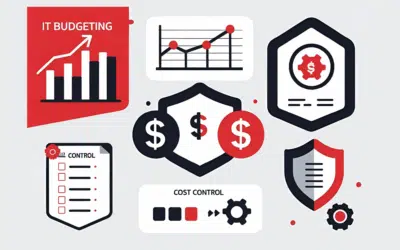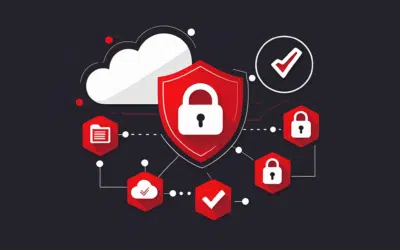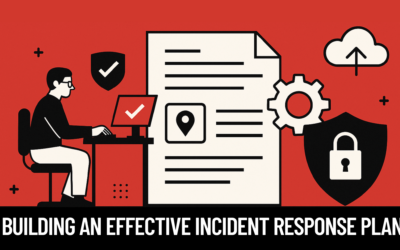You would never leave the door to your business unlocked for thieves, nor would you leave your merchandise unsecured. You most probably have alarms, security cameras, and other anti-theft measures installed at your company.
After all, you need to know who’s in your office and why.
Now ask yourself if your computer network has the same level of security. Do you know who’s been in your network lately? Do you know who has access to it?
If you have doubts about your network security, you need to increase your security measures.
Basic Safety Measures
Certain hardware devices and software programs are necessary to establish even a minimal level of network security. Having the following programs guarding your network is a good start.
Firewalls
Firewalls can be either hardware or software that protects your internal network from external “open” networks. Your firewall is set to manage the flow of information into your system so that undesirable interaction is blocked. Otherwise, it’s as if you left the gate open for anyone to enter your domain.
Antivirus Programs
You simply cannot do without antivirus software, whether it be at home or the office.
While you can access free programs, your business needs a more sophisticated version to identify, block, and/or remove viruses, malware, spyware, etc. Without these programs, your computer can easily be hacked and your business files stolen, including sensitive customer information.
When that happens, you can take a big hit financially. You’ll also open yourself up to a lawsuit.
Antivirus programs help protect you from ransomware, which has become a serious threat to businesses in the last few years. With those attacks, malicious cybercriminals lure you into clicking on a link or opening an attachment. They then “take over” your system and hold it for actual ransom.
Either you pay the ransom, or your business is rendered helpless. It’s never a guarantee that you’ll get your files back, even if you pay.
Network Security Audits
You should routinely run a security audit to make certain your system is running smoothly. Audits also help you identify any potential opening for hackers. An audit can be done by a professional, although you can always acquire software the you can use to audit yourself.
Related: Knowledge is Power and Strength Against Cyber Security Threats
During the audit, IT security experts will check your hardware and software, as well as the internal flow of your data. In addition, they’ll check out your network security policies and your user habits. This process audit helps you identify problems in your network that slow your operation. Overall, audits are invaluable for finding security lapses.
Compliance Standards
Make certain that your system is set up to comply with industry regulatory compliance standards. For instance, healthcare-related businesses must have a network that adheres to HIPAA rules and safeguards patient information.
Your business may have to follow PCI for credit card transactions, or Sarbanes Oxley for accounting ventures.
Failure to comply with these standards can cost you in fines and lost business.
Tracking Users and Devices
To protect your network, you need to know who has access to it and through what devices.
Although you can accomplish this process manually, you can also use a software application to do it for you. If an employee is allowing someone to access your company data, you must be aware of it.
Taking Proactive Security Measures
Companies can benefit from taking proactive measures when it comes to network security. You can choose options that help you eliminate weaknesses in your system before someone breaches your network.
Threat Monitoring
You can invest in threat monitoring software that analyzes data to detect possible breaches and cyberattacks. Through a sophisticated process, these programs can alert you to potential threats before your system has been compromised.
Once you have been alerted of an inbound threat, your IT team can take steps to safeguard your network before the worst happens. It’s not different from a storm alert – when a tornado is heading your way, you want to know so you can take evasive action.
Related: 4 Components of Network Security You Need
Penetration Testing
Hiring someone to hack your system may seem counterintuitive, but it’s one of the best ways to check the integrity of your network security. Computer experts can run drills that try everything to breach your network security.
These experts also use software tools that help in this endeavor, just as hackers do. For instance, Nmap works to find all the ways that someone can invade your network. Programs like Aircrack-ng works best at attacking wireless networks and probing for weaknesses. If your friendly computer expert can break in, imagine what an unfriendly agent could do to your business.
In other words, penetration testing lets you know if your “door locks” actually work.
Axxys Knows Business-grade Network Security
Network security should be a key focus in your company.
Almost every business relies heavily on a computer network in order to function. Hackers don’t discriminate according to business size, either. Even if you own a modest-sized company, hackers will target you. A small security breach can cost dearly in lost dollars, employee downtime, and reputational damages.
Keeping your data safe means using the latest software and being forever vigilant. You can hire an accomplished network security provider to manage your network and install the best security tools available.










